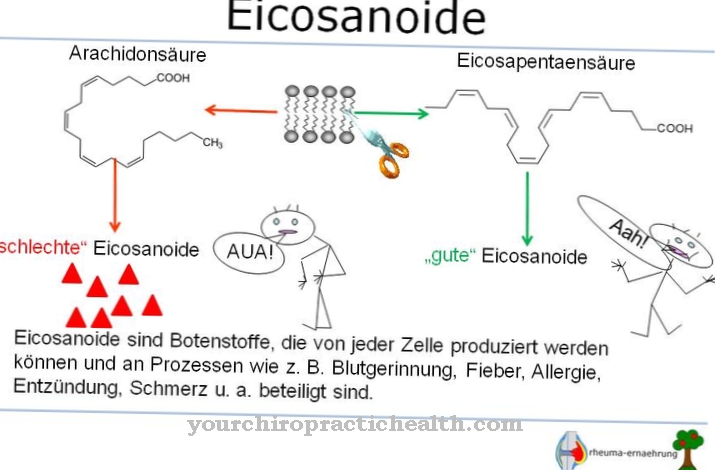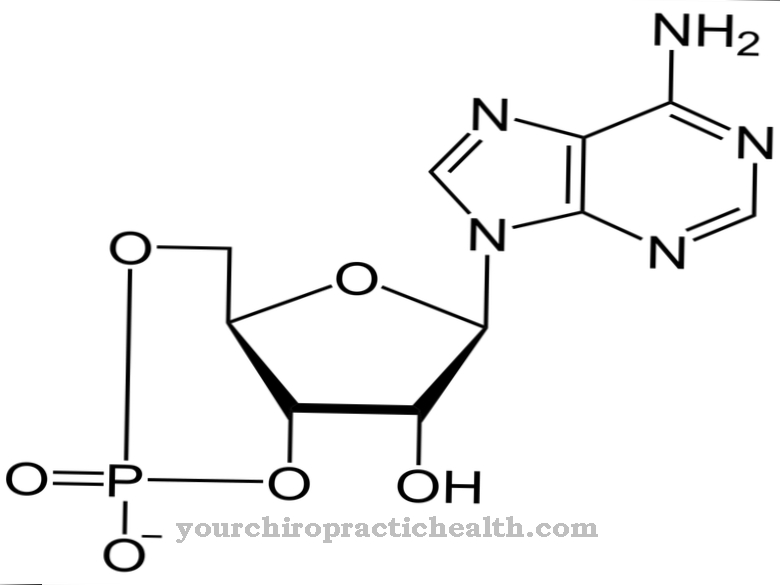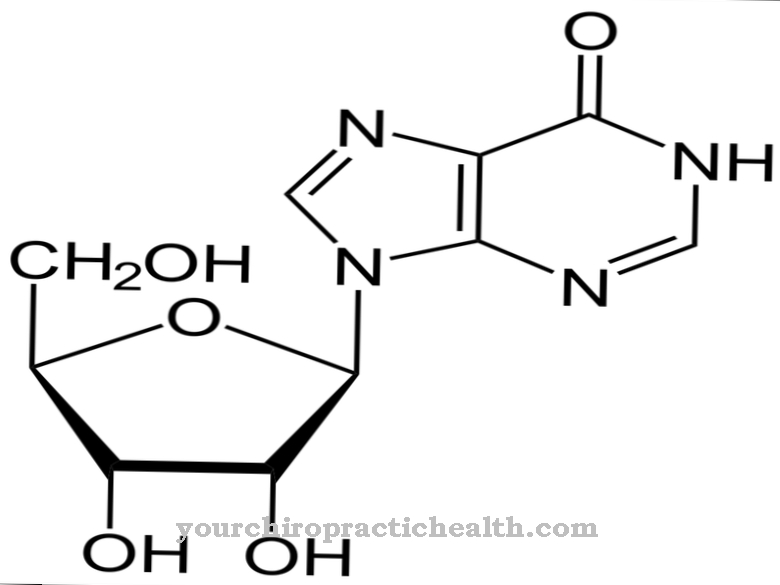The Adrenocorticotropin (also Adrenocorticotropic hormone, short: ACTH) is better known as the "stress hormone" because the body releases it especially in stressful situations. ACTH is formed in the anterior pituitary gland of the brain when the corticotropin-releasing hormone (CRH), which is superior to ACTH, stimulates the anterior pituitary gland to do so. ACTH stimulates the adrenal cortex to produce various hormones, including various sex hormones.
What is adrenocorticotropin?

ACTH is a hormone produced in the anterior pituitary gland. It is increasingly released in situations in which the person feels stress. Possible stress-inducing factors can be injury, illness, general living conditions (work, school) or strong emotions.
For example, there is a high ACTH value in the tear fluid due to emotional crying. Because of the clear connection between stress and ACTH concentration in the blood, ACTH is colloquially referred to as the stress hormone.
Production, manufacturing & education
ACTH is produced in the anterior pituitary gland of the brain. However, the anterior pituitary gland needs an impetus in the form of a release of CRH to produce ACTH. With the release of ACTH, the adrenal cortex in turn begins to release mineralocorticoids, glucocorticoids and sex hormones.
Mineralocorticoids are needed by humans to regulate the potassium-sodium balance, glucocorticoids to maintain glucose metabolism and sex hormones - roughly speaking - for reproduction and for the sex drive. If the person is not exposed to stress, the concentration of ACTH decreases over the course of the day, so that in the evening, shortly before going to sleep, only a very low ACTH concentration can be detected.
If a person is exposed to a permanent stressful situation - such as an illness or an unsatisfactory work situation - the concentration of ACTH is continuously high. The result is poor falling asleep and staying asleep. The ACTH secretion of the brain has not yet settled in newborns. A high ACTH concentration in the evening can contribute to an unsatisfactory sleep situation in this phase of life.
Function, effect & properties
ACTH is an endogenous hormone that is produced in the anterior pituitary gland. It is responsible for the release of various hormones from the adrenal cortex, e.g. Sex hormones and hormones for maintaining the potassium / sodium and glucose balance.
A short-term, very high release of ACTH in a stressful situation - for example in an attack on yourself - ACTH triggers an escape or a counterattack in close interaction with the better known adrenaline. In such a situation, people have the feeling of “superhuman strength”, which can be vital for coping with the situation.
Various diseases of the body or the release of ACTH can severely affect people's everyday life, for example if sleep disorders occur or the patient is constantly tired. ACTH imbalance is difficult to diagnose as the symptoms can be associated with countless other diseases.
Illnesses, ailments & disorders
Numerous diseases and ailments can lead to an over- or under-function with ACTH. Extreme cold, stress, and adrenal insufficiency can lead to an increased release of ACTH.
People then feel more stressful, find it difficult to rest and in the worst case suffer from insomnia. Cushing's disease is a tumor of the pituitary gland that mainly damages the ACTH-producing cells and stimulates them to increase ACTH production. As a result, the adrenal gland produces more cortisol, which in turn can lead to complaints (such as metabolic disorders, the appearance of a moon face).
If Sheehan syndrome is present - for example as a reaction to a previous delivery - the pituitary gland does not produce enough ACTH. The symptoms are usually expressed in sexual aversion, lack of milk penetration, and increased paleness. Patients suffering from ACTH deficiency often feel tired and exhausted despite adequate rest and sleep. ACTH imbalance is difficult to diagnose and will only be detectable with an extensive blood test.
ACTH is widely used to treat various forms of epilepsy. Treatment with ACTH is particularly responsive to patients suffering from West syndrome - a special form of epilepsy. Why the administration of ACTH has a mitigating effect has not yet been adequately explained, but therapy with ACTH is now standard; about 8 out of 10 children are initially seizure-free after being given ACTH.
Home remedies ↵ for stress Seizures recur in 65% of treated children after stopping ACTH. Despite the good prognosis, the use of ACTH for the treatment of epilepsy is not without controversy, as severe side effects can occur. Side effects include a general weakening of the immune system, high blood pressure and vomiting, gastric bleeding, heart failure and leukocytosis. Infants born prematurely tend not to respond to treatment with ACTH.
You can find your medication here
➔ Medicines for relaxation and nerve strengthening













.jpg)

.jpg)
.jpg)











.jpg)